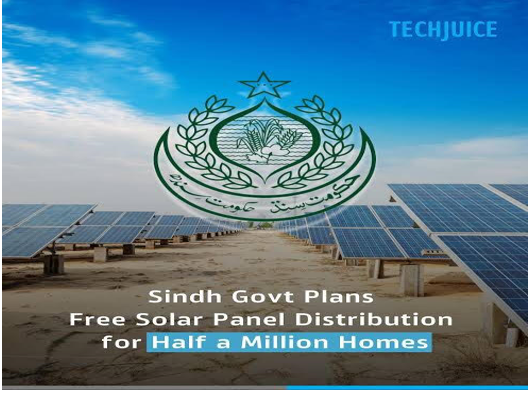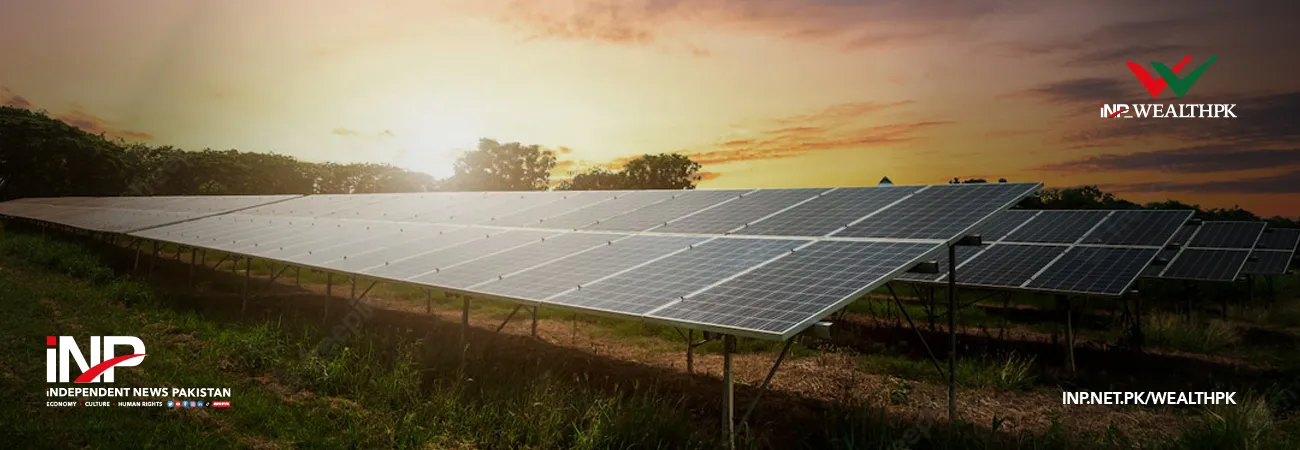آئی این پی ویلتھ پی کے
Ahmed Khan Malik
The Sindh government focuses on harnessing the province’s solar power potential to tackle energy insecurity, reduce electricity costs, and promote environmental sustainability.

This initiative is designed to bring energy access to millions of people, especially in off-grid and underserved regions, while contributing to Pakistan’s broader clean energy goals. At the heart of Sindh’s renewable energy plan is a landmark initiative to provide free solar systems to 2.6 million households across the province.
Under this five-year plan, 500,000 homes will be equipped in the first phase, which is under implementation with solar kits comprising a 100-watt panel, three LED lights, a fan, and a battery capable of providing six hours of electricity to the households.

“This initiative aims to significantly improve quality of life in rural and remote areas where grid electricity is unavailable or unreliable. The next phase of the programme will be announced in the next budget,” Tehseen Siddiqui, Director of Sindh Energy Department, told WealthPK.
He said that over the past year, Sindh added 17 renewable energy projects to the national grid, demonstrating its commitment to a sustainable energy future. “These include 12 wind power projects, three solar projects, one hybrid solar-green hydrogen project, and one wind-solar hybrid project.
Looking ahead, the province aims to generate 4,000 megawatts (MW) through wind energy, 500MW from solar photovoltaic technology, and 100MW from solar thermal power,” he added. Besides, he said the Sindh government has committed to transitioning all public buildings to solar energy.
“This initiative is expected to significantly cut energy costs for the public sector and reduce the province’s overall carbon footprint.” Siddiqui said that to support the infrastructure needed for widespread solar adoption, Sindh plans to establish solar parks and mini-grid stations throughout the province, including urban areas such as Karachi.
“These developments will ensure more reliable electricity delivery while enhancing the capacity of the renewable energy grid,” he added. To ensure the smooth implementation of these initiatives, he said the provincial government has activated the Sindh Power Regulatory Authority (SIPRA), which will oversee the integration of renewable energy projects, ensuring compliance, transparency, and investor confidence.
“Furthermore, the government has clarified that it does not intend to impose any taxes on electricity generated from solar panels, removing a potential barrier to the adoption of clean energy,” he said.
Siddiqui said that Sindh’s renewable energy strategy marks a significant shift toward energy equity and environmental responsibility. “By focusing on clean, affordable energy solutions, the province is not only addressing the immediate needs of its citizens but also contributing to Pakistan’s long-term sustainable development goals.”
Credit: INP-WealthPk



